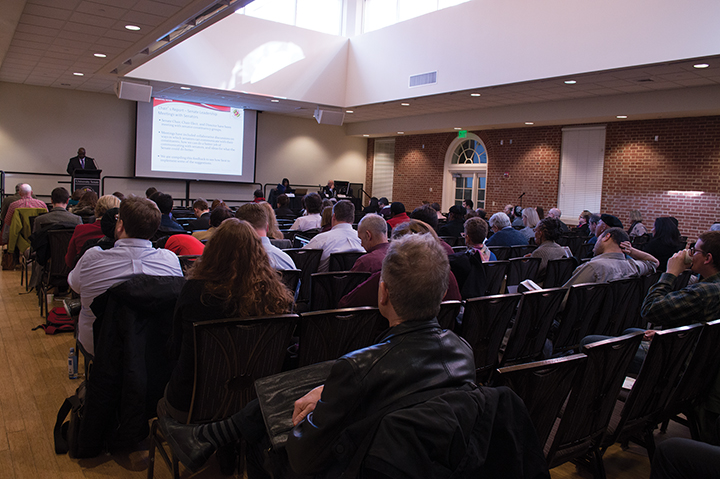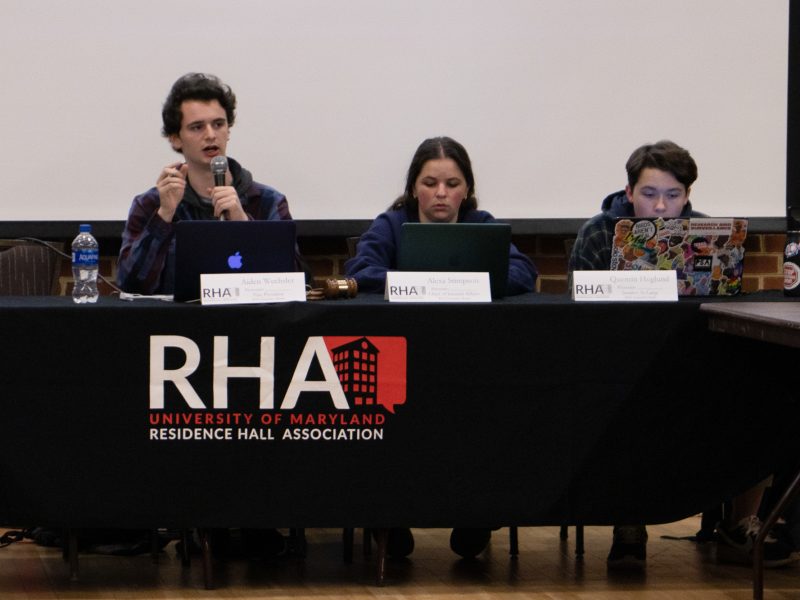About 800 more students voted in this year’s student University Senate election than in the 2016 election, according to senate documents.
About 2,544 students — consisting of about 8 percent of undergraduate and graduate students — cast their votes for student senators between Feb. 20 and March 3, compared to 1,741 students last year. In total, 30 undergraduate student senators and 11 graduate students were elected, increasing the number of undergraduate senators by two.
“I am very excited to hear that more students voted in this year’s elections than last year,” said Maya Spaur, a current behavioral and social sciences college senator and a senior environmental science and technology and government and politics major. “Increasing voter participation means we are expanding representation in the senate, which is an important step forward.”
[Read More: A breakdown of how the University of Maryland Senate helps turn ideas into policy]
The student senators stem from 13 colleges across the campus represent the student body in the senate, which handles all campus policy matters and also advises university President Wallace Loh. Students have been a part of the senate since 1970, according to the senate website.
Senate Director Reka Montfort sends out three emails during each election period to remind students to vote, but this year she reformatted the emails to try to make them more understandable, she said. Instead of emailing the entire university community the same general email about voting in the elections, she sent separate emails to the student body that did not include faculty and staff, and described the student elections in more detail.
The increase in votes “could have been our emails,” Montfort said, “but it could have just as easily been due to [The Diamondback’s article on student senators].”
Montfort added that she doesn’t think the number of votes went up because of the two new undergraduate positions, “because the same number of students were still eligible to vote regardless of the number of seats.”
“I was really surprised to hear how many students voted, because the only way I knew about running for the senate was through the emails sent out to us,” said Lillia Damalouji, a junior government and politics major and one of the newly elected senators. “There would be greater participation in this if there were alternate ways in reaching students.”
The senate office is going to brainstorm ideas this summer on how to better advertise the elections moving forward so more students vote and run for positions, Montfort said.
“We advertise the election already, but I don’t think we communicate the things we do well enough,” Montfort said. “We are going to try and review this in the summer when things are slower, because the busiest time of the year for us is from elections until the [senate’s] last meeting in May.”
Damalouji, a senator for the behavioral and social sciences college, said her campaigning during the election period on social media likely got more students to vote.
[Read More: A University Senate task force wants to expand sexual assault training programs]
“I didn’t know if people put up posters or not, so I thought posting on Facebook might be the best way to reach the largest base of students,” Damalouji said. “Especially for Facebook groups, they are the notification center for Maryland events, which is why I thought it was the best route to reach students.” She said she asked students to vote for her in the University of Maryland Class of 2018 group as well as on her personal Facebook page.
Coming into her new position, she said her main goal is to make the senate “more transparent, and allow members of the campus community to be represented better within this shared governance.”
Students are allowed to campaign, Montfort said, but the senate office doesn’t fund the campaigns and the students have to follow university guidelines. For example, students can use chalk on any sidewalk, but cannot write campaign messages in areas such as stairs, entryways, benches or walls of buildings.
Not all students were aware of the election, though. While graduate student Ankit Mondal voted in last year’s senate elections, he said had no idea that this year’s elections had already happened.
“I don’t hear people talking about the senate elections too much, but frankly speaking, students — especially graduate students — are more focused on their studies and classes than the senate,” said the second-year electrical and computer engineering graduate student.
The election results, excluding the education college’s results, are available on the senate website.




